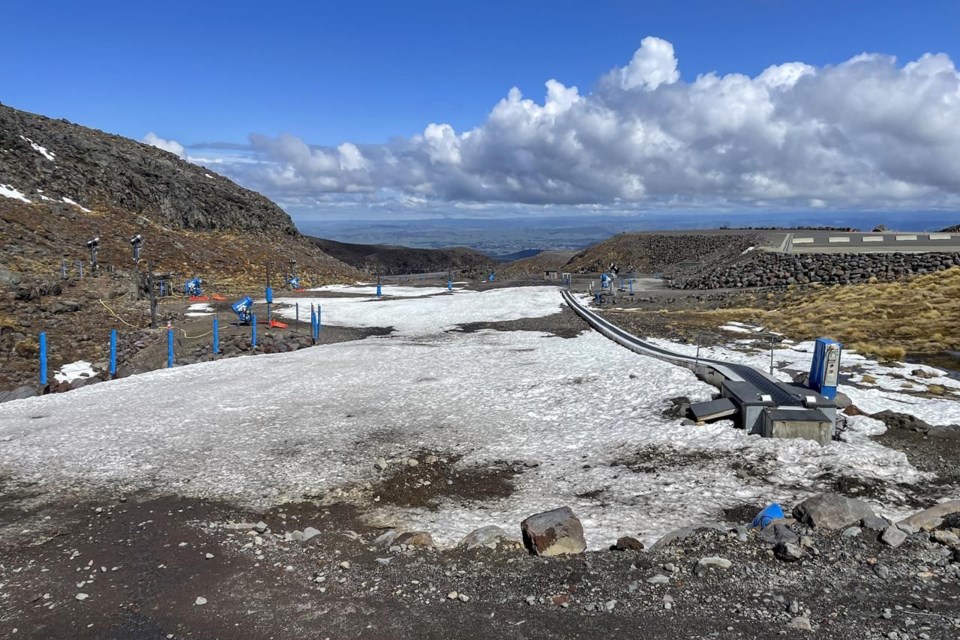WELLINGTON, New Zealand (AP) ΓÇö New Zealand had its hottest year on record in 2022, beating a mark set just a year earlier thanks to a combination of natural weather cycles and manmade global warming, the agency that monitors temperatures said Wednesday.
The nation's top four hottest years have all been recorded since 2016, and scientists don't see the trend reversing. Records are being broken around the globe, with and among other nations to also hit new highs in 2022.
And as well as being warm, 2022 was also one of New Zealand's wettest years. August storms , triggered landslides and forced hundreds of residents to evacuate.
In October, two of the countryΓÇÖs largest ski areas were placed into a type of following a with barely any snow.
The National Institute of Water and Atmospheric Research, which has been recording temperatures since 1909, said the average temperature across the country in 2022 was 13.8 degrees Celsius (57 degrees Fahrenheit).
That was more than 1.2 degrees Celsius above the long-term average and beat the previous record by 0.2 degrees Celsius.
Chris Brandolino, a principal scientist with the agency, said the high temperatures were driven by a combination of weather cycles including the La Ni├▒a system, which brings cooler-than-normal ocean temperatures to the tropical Pacific and warmer air to New Zealand.
He said manmade factors also contributed.
ΓÇ£Climate change continues to influence New Zealand's long-term temperature trend,ΓÇ¥ Brandolino told reporters.
He said the levels of carbon dioxide measured in the atmosphere near Wellington keep rising.
ΓÇ£Unfortunately you can see that trend, dating back to before 2014, continues to go upward and in the wrong direction,ΓÇ¥ he said.
Brandolino said there was no discernable effect on last year's weather from the of a volcano in Tonga.
He said he expects the first few months of 2023 to continue being warmer and wetter than normal, and for temperatures over time to keep rising.
"It's hard to see us breaking from the trend that we are on," Brandolino said.
Nick Perry, The Associated Press




